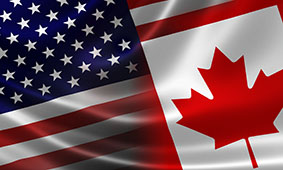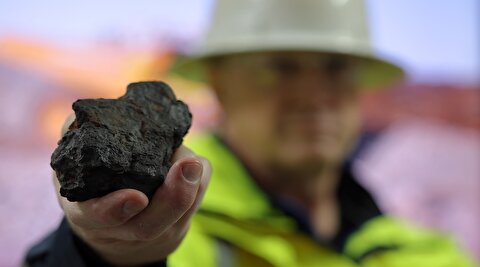
Canada – United States Trade: Aluminum at the nucleus of the turbulence

The movement initiated post the American Primary Aluminum Association (APAA) lobbied the Trump administration and ran a media campaign in which it directly denounced an alleged increase in Canadian aluminium exports to the United States.
The decision of the United States Department of Commerce, which fell on April 29, should make it possible to establish a surveillance mechanism modelled on that which exists for steel exports. The measure was also welcomed by the APAA in a press release published on Monday.
APAA attacks on the Canadian aluminium industry were picked up by former Arkansas governor Mike Huckabee, who ran for the Republican Party in 2016.
The APAA represents only two of the aluminium companies in the United States, Century and Magnitude 7, which account for less than 3% of all jobs in the industry. Glencore, which owns Century, has waged a price war against Canada for two years.
But his sustained campaign has produced results that force the Aluminum Association of Canada (AAC) to be on guard. The ACA invites the Trudeau government to be firm in opposing the adoption of unjustified protectionist policies south of the border.
Especially since the data collected by the Office of the United States Trade Representative unequivocally demonstrate that American imports of primary aluminium from Canada today essentially correspond to levels before the implementation of the item's tariffs. 232, 1st June 2018.
For the AAC, the source of the problem lies elsewhere. Jean Simard, President and CEO of the AAC said: "The American Primary Aluminum Association unfairly blames Canada for the problems in the world market caused by subsidized overcapacity in China.”
He also said: “Canada has been a reliable supplier of responsibly produced aluminium to the United States for decades and a key part of its supply chain."
Simard added that: “Canada was the first country among the signatories to NAFTA 2.0, also known as the Canada – United States – Mexico Agreement (CUSMA), to have a system robust surveillance of its aluminium imports for the specific purpose of countering any possibility of transhipment by a third country, including China.”
At the office of the Deputy Prime Minister of Canada, Chrystia Freeland, responsible for the negotiations of the CUMA, we are assured that Canada is meeting its obligations.
The ACA and its American counterpart, the Aluminum Association of the United States, which represents 97% of the critical mass of the industry, are working together to promote the revival of the sector with the imminent entry into force of the ACEUM.
Mr Simard concluded: "After the two railway conflicts, COVID-19 and its repercussions on the world economy, let us say that the North American aluminium market has already suffered enough and that our energies should rather be channelled towards the recovery and the settlement of the Chinese overcapacity problem.”
The ACC represents three giants of the aluminium industry - Alcoa, Aluminerie Alouette, and Rio Tinto. These three companies have 10 factories in Canada, including 9 in Quebec and they employ more than 9,000 people.



Gold price edges up as market awaits Fed minutes, Powell speech

Glencore trader who led ill-fated battery recycling push to exit

Emirates Global Aluminium unit to exit Guinea after mine seized

UBS lifts 2026 gold forecasts on US macro risks

Iron ore price dips on China blast furnace cuts, US trade restrictions

Roshel, Swebor partner to produce ballistic-grade steel in Canada

EverMetal launches US-based critical metals recycling platform

US hikes steel, aluminum tariffs on imported wind turbines, cranes, railcars

Afghanistan says China seeks its participation in Belt and Road Initiative

First Quantum drops plan to sell stakes in Zambia copper mines

Ivanhoe advances Kamoa dewatering plan, plans forecasts

Texas factory gives Chinese copper firm an edge in tariff war

Pan American locks in $2.1B takeover of MAG Silver

Iron ore prices hit one-week high after fatal incident halts Rio Tinto’s Simandou project

US adds copper, potash, silicon in critical minerals list shake-up

Barrick’s Reko Diq in line for $410M ADB backing

Gold price gains 1% as Powell gives dovish signal

Electra converts debt, launches $30M raise to jumpstart stalled cobalt refinery

Gold boom drives rising costs for Aussie producers

First Quantum drops plan to sell stakes in Zambia copper mines

Ivanhoe advances Kamoa dewatering plan, plans forecasts

Texas factory gives Chinese copper firm an edge in tariff war

Pan American locks in $2.1B takeover of MAG Silver

Iron ore prices hit one-week high after fatal incident halts Rio Tinto’s Simandou project

US adds copper, potash, silicon in critical minerals list shake-up

Barrick’s Reko Diq in line for $410M ADB backing

Gold price gains 1% as Powell gives dovish signal

Electra converts debt, launches $30M raise to jumpstart stalled cobalt refinery
















